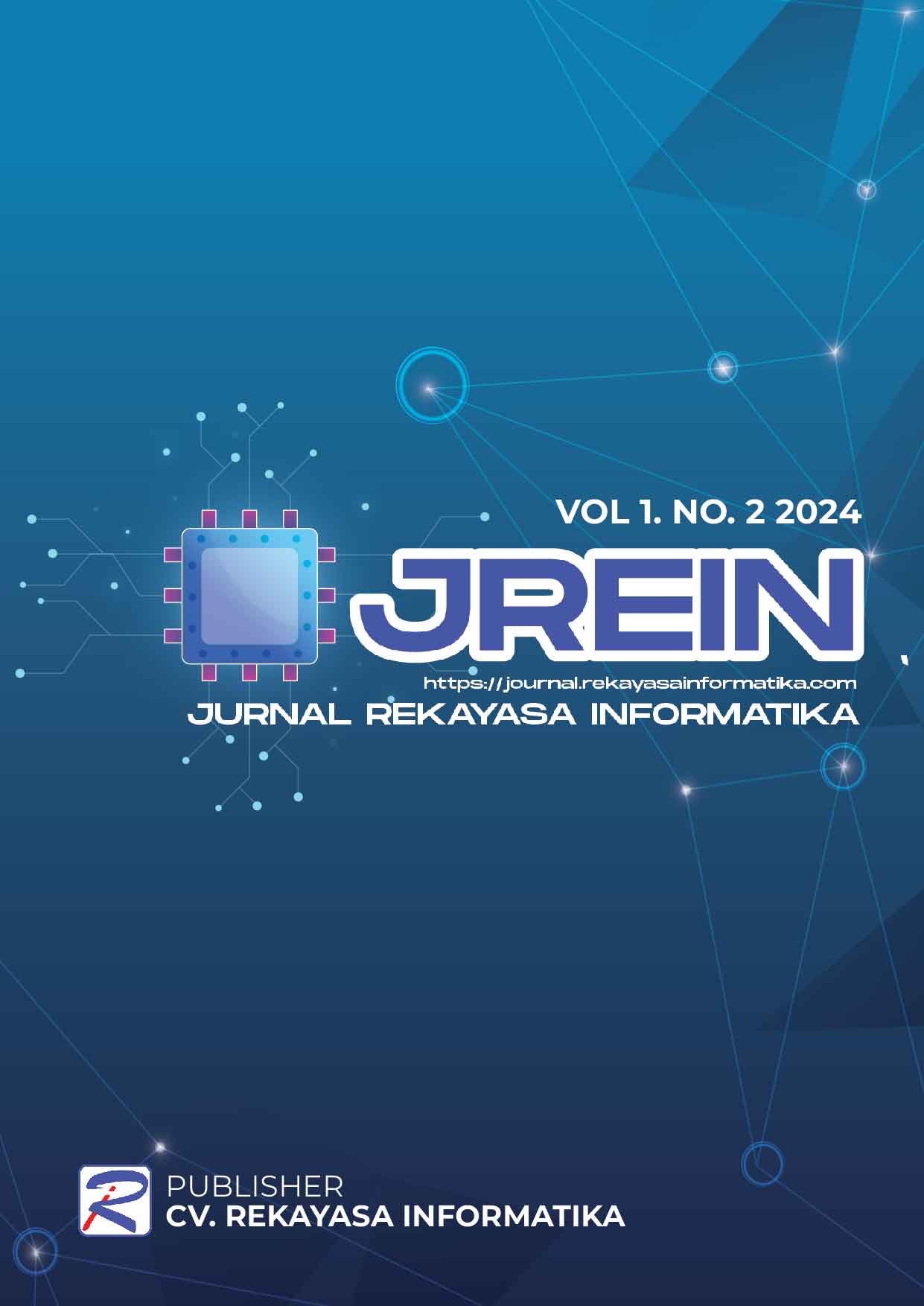Analisis Implementasi Robotic Di Bidang Pendidikan: Systematic Literature Review
Keywords:
Education, Robotic Process Automation , Information System, Systematic Literature ReviewAbstract
Robotic Process Automation (RPA) is software that mimics human actions to complete rule-based tasks, playing a significant role in the modern world. Robots enhance the quality of life through technological advancements and are essential in education for improving students' practical skills and providing new insights through video animations and information system learning applications.Early childhood education is crucial, and the "4C" skills—critical thinking, problem-solving, innovation, creativity, cooperation, and communication—are vital for facing global challenges and the Society 5.0 era. Technology integrates the real and virtual worlds, allowing machines to collect, analyze data, and make decisions. This research employs the Systematic Literature Review (SLR) method to analyze literature on robotic programming, artificial intelligence, machine learning, sensors, actuators, and mechanical and electronic design. Robotics can solve complex educational problems and has the potential to be engaging teachers, helpful assistants, personal tutors, and compassionate therapists, thereby expanding educational access, personalizing learning, and increasing student motivation. However, challenges like costs, teacher training, and ethics need to be addressed. With proper implementation and planning, robotics holds great potential for creating a brighter, more engaging, and accessible future for education.
References
T. Susanto, H. Ramdhani, Y. Gunawan, dan M. H. E. Putra, “IMPLEMENTASI ROBOTIC PROCESS AUTOMATION UNTUK PROSES REKRUTMEN MAHASISWA MAGANG,” J. Teknol. Inf. dan Ilmu Komput., vol. 9, no. 6, hal. 1261–1272, 2022, doi: 10.25126/jtiik.2022955508.
N. T. Wirawan, Defnizal, dan R. N. Ernes, “PEMBUATAN TEKNOLOGI ROBOTIK DALAM DUNIA MILITER SEBAGAI MEDIA PEMANTAU DAN NEGOSIASI BERBASISKAN ARTIFICIAL INTELLIGENCE,” JURTEKSI (Jurnal Teknol. dan Sist. Informasi), vol. 6, no. 2, hal. 155–162, 2020, doi: 10.33330/jurteksi.v6i2.538.
A. Phelia, G. Pramita, T. Susanto, A. Widodo, dan R. A. M. Putra, “PENINGKATAN PENGETAHUAN ANIMASI VIDEO DAN ROBOTIK DALAM PENERAPAN PROJECT BASE LEARNING DI SMA IT BAITUL JANNAH,” J. CEMERLANG Pengabdi. pada Masy., vol. 4, no. 1, hal. 88–97, 2021, doi: 10.31540/jpm.v4i1.1424.
N. S. Sopiah, S. Mulyadi, dan A. Loita, “Implementasi Pembelajaran Steam Melalui Permainan Coding Robotik dalam Melatih Problem-Solving Anak Usia Dini,” Indones. J. Early Child. Educ., vol. 6, no. 2, hal. 113–134, 2023.
A. Fadjria, R. Purnomo, dan N. Rahman, “Pengendali Robot Tempat Sampah Menggunakan Smartphone Berbasis Boarduino,” J. Jaring SainTek, vol. 1, no. 2, hal. 52–60, 2019, doi: 10.31599/jaring-saintek.v1i2.171.
Marsella, C. S. Wijaya, I. Wijaya, M. T. Shidqi, dan D. Novita, “ANALISIS IMPLEMENTASI ARTIFICIAL INTELLIGENCE UNTUK BISNIS: SYSTEMATIC LITERATURE REVIEW,” Device J. Inf. Syst. Comput. Sci. Inf. Technol., vol. 4, no. 2, hal. 133–145, 2023, doi: 10.46576/device.v4i2.4037.
Rahimuddin et al., “Robot Penggerak Dua Roda Sebagai Media Pembelajaran Robotik bagi Siswa di Pondok Pesantren IMMIM Makassar,” Panrita Abdi - J. Pengabdi. pada Masy., vol. 5, no. 2, hal. 144–151, 2021, [Daring]. Tersedia pada: http://journal.unhas.ac.id/index.php/panritaabdi
B. Hendrik dan H. Awal, “PENGENALAN TEKNOLOGI ROBOT PADA ANAK SEKOLAH DASAR,” J. PKM BANGSA, vol. 1, no. 1, hal. 46–52, 2022, [Daring]. Tersedia pada: https://rcf-indonesia.org/jurnal/index.php/bangsa
Esti Giatrininggar dan R. T. S. Hariyati, “PEMANFAATAAN TEKNOLOGI ROBOT DALAM MANAJEMEN RUANG PERAWATAN COVID-19,” Int. J. Soc. Sci., vol. 1, no. 5, hal. 963, 2022.
M. U. RIDWANULLOH, Z. N. R. A. AFIFAH, S. R. JANNAH, dan F. G. PUTRA, “MANAJEMEN SARANA DAN PRASARANA PENDIDIKAN UNTUK MENINGKATKAN MUTU PEMBELAJARAN DAN EKSTRA ROBOTIK (Studi Kasus di MAN 01 Kota Kediri),” J. Idaarah, vol. VII, no. 1, hal. 43–58, 2023.
F. Faridawati, E. Minarto, I. I. Wati, Sutrisno, dan L. Hakim, “PEMBELAJARAN ROBOTIK UNTUK MEMPERSIAPKAN GENERASI MUDA MENGHADAPI REVOLUSI INDUSTRI 4.0 DAN SOCIETY 5.0,” J. Pengabdi. Kpd. Masy. Teknol. dan Apl., vol. 1, no. 2, hal. 85–92, 2020.
L. Halim, C. F. Naa, B. Arthaya, N. Saputro, dan A. Sadiyoko, “Pendampingan Program Technocreator dan Perancangan Kurikulum Ekstrakurikuler Robotik untuk SMAK 1 BPK Penabur Bandung,” PengabdianMu J. Ilm. Pengabdi. Kpd. Masy., vol. 9, no. 3, hal. 523–529, 2024, doi: 10.33084/pengabdianmu.v9i3.6605.
Downloads
Published
Issue
Section
License
Copyright (c) 2024 Jurnal Rekayasa Informatika

This work is licensed under a Creative Commons Attribution 4.0 International License.








